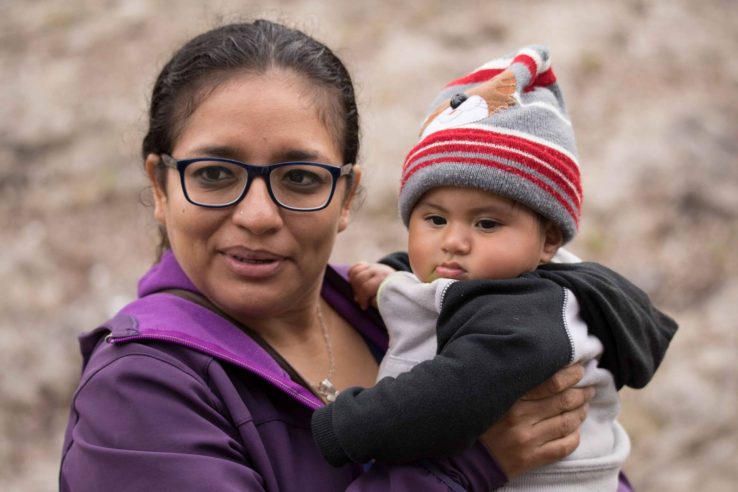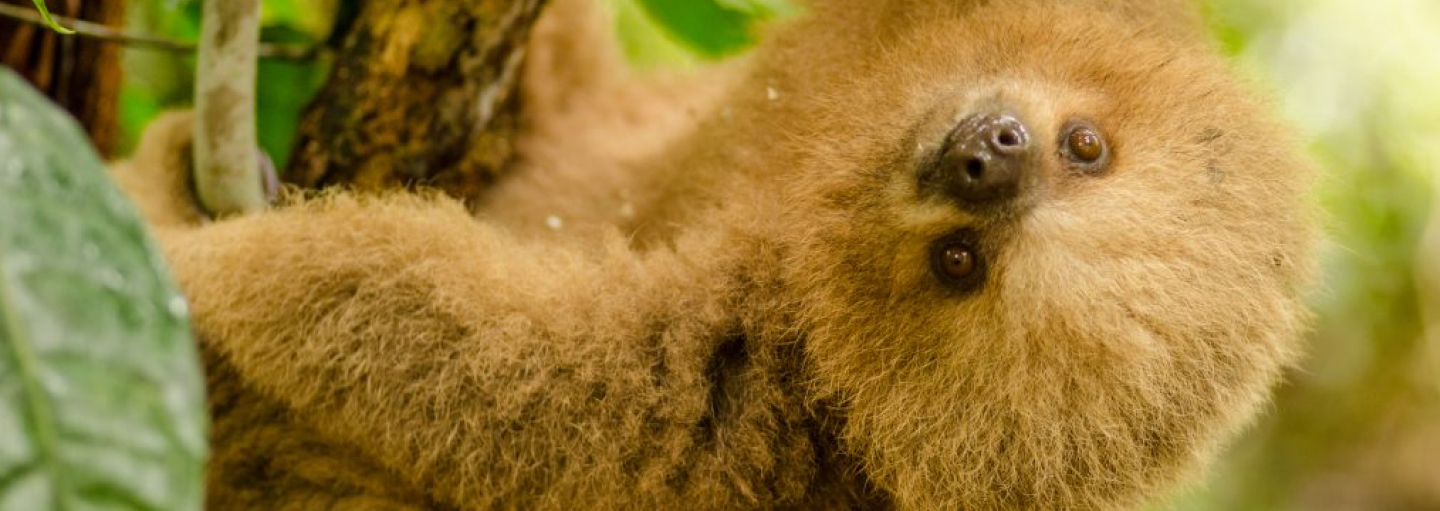Celebrating Women in Conservation
03/07/2019
Today we celebrate some extraordinary women who are working to protect our planet.
Every day, women across the globe take on tasks both small and large to help the environment. At Nature and Culture, we partner with communities and local women in Latin America to support their involvement in conservation, sustainable development and decision-making.
Here’s a look at a few stories:
Erika Catashungo (pictured above)
Growing up in the remote rainforest of Peru, Erika Catashungo never imagined she would manage a global business. “Not even in my dreams,” she said. Today, Erika is manager of My Forest Hope Cooperative (My Hope), a communal enterprise producing sustainably-crafted artisan goods for an international market.
Together with Nature and Culture and the Department of Loreto’s Regional Park Service, Erika established My Hope with a group of local women in 2007. The project involved women using their communities’ ancestral knowledge and fiber from the chambira palm to sustainably weave baskets and other handcrafts, as well as reforesting their lands with chambira plants.
The cooperative has changed the lives of more than one hundred artisans from rural communities in the Amazon rainforest of Loreto. Weaving has partially replaced traditional harmful economic activities in the area, such as charcoal making, hunting and timber extraction. Additionally, average income in participating communities has increased about three-fold, and 70% of revenues are reinvested in the family which goes towards children’s education, health and well-being and home repairs.
 Katty Carrillo
Katty Carrillo
Born in Piura, Peru, Katty is a conservation biologist and senior staff member at Nature and Culture. For the past decade, she has devoted her life to the protection of the fragile Andean ecosystems in the regions of Piura and Cajamarca. By working hand-in-hand with local farmers, Katty’s efforts led to the creation of eight community and municipal protected areas that form the Andean Corridor of northern Peru.
Katty’s success in the region didn’t come easily. When starting her career, she experienced several challenges as a woman in the field. “In many occasions I had to ask my male co-workers to accompany me to the first meeting with local authorities. This would facilitate my introduction, validate my professional credentials and open doors for me,” recalls Katty.
Now, Katty empowers, inspires and guides the way for other local women to stand up for conservation. She encourages participation in Nature and Culture’s conservation workshops and assemblies and the inclusion of women in community politics and the pursuit of higher education. Katty hopes “local women will play an important role in ecosystem conservation in the near future.”
 Amada pictured
Amada pictured
Amada and Elisa Macas
Sisters Amada and Elisa Macas are achiote producers in Santa Cecilia, Ecuador. They are Saraguro, a sub-group of the Kichwa, one of Ecuador’s 13 formally-recognized indigenous nationalities. In search of cultivable land, Amada and Elisa’s parents emigrated from the town of Saraguro to Santa Cecilia before Amada and Elisa were born.
Today, Amada and Elisa are part of Nature and Culture’s achiote project, a sustainable livelihood project in Jambué Valley, Ecuador. Achiote (Bixa orellana) is a fast-growing, shrubby tree that produces seeds from which the commonly used spice and food colorant achiote (or annatto) is obtained. Because it is able to grow in nutrient-poor soils, achiote has the potential to generate stable income from degraded lands that are no longer used by farmers—including the vast abandoned cattle pastures in Jambué Valley. With a grant from UNESCO, Nature and Culture supports the Macas sisters and other community members with cultivation, providing families with seeds and technical assistance.
With Nature and Culture’s support, Amada and Elisa have been able to reforest land with achiote, enhance the economic productivity of their lands without further deforestation and diversify their household income. They are currently working towards obtaining organic certification, and hope to start their own business selling organic achiote spices, vegetables and dairy products.
 Lydia Lozano
Lydia Lozano
Born and raised in Culiacan, Sinaloa, Lydia is Program Director of Nature and Culture – Mexico. For the past six years, Lydia has led the day-to-day operations of Nature and Culture’s Monte Mojino Reserve (ReMM) in Alamos, protecting Mexico’s tropical deciduous forest. She works closely with field staff and with our colleagues at the National Commission of Natural Protected Areas (CONANP) to manage the reserve and protect its many species, including the iconic jaguar.
Lydia and Nature and Culture staff members in Mexico (most of whom are women) are passionate about empowering female community members. For the past few years, they have worked with women from El Sabinto Sur, a rural community close to ReMM, to professionalize their embroidery work and other crafts, and create opportunities for them to sell their products at events. Additionally, they are working towards establishing a program similar to girl scouts for local girls. The program will promote self-confidence, knowledge, curiosity and a connection to the natural world through nature-based activities.
Lydia said, “We know that by working with women and girls, we can make a strong and lasting impact.”
It’s an honor to meet and work with strong and resilient women to protect our planet.


 Lydia Lozano
Lydia Lozano